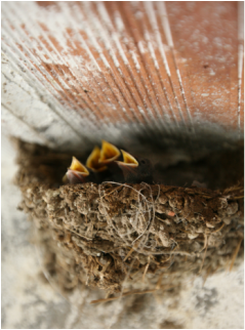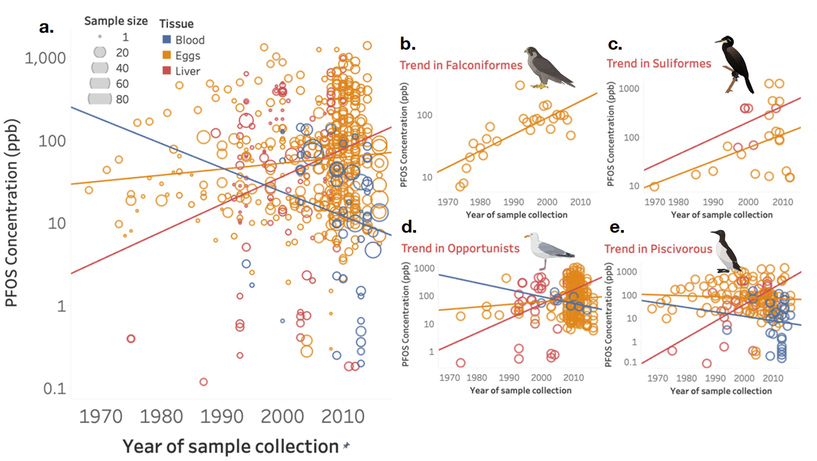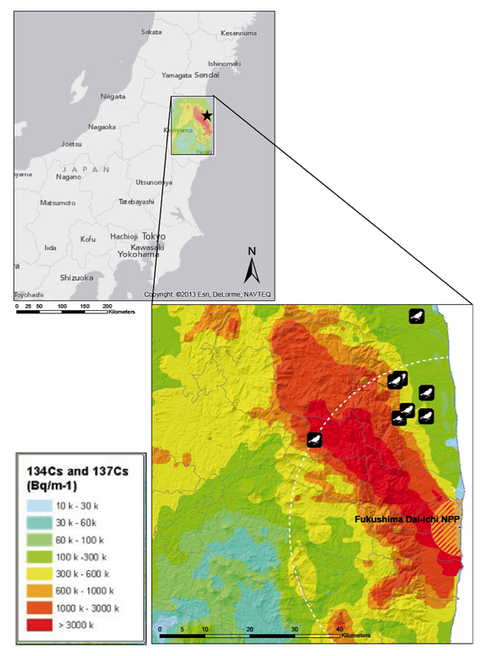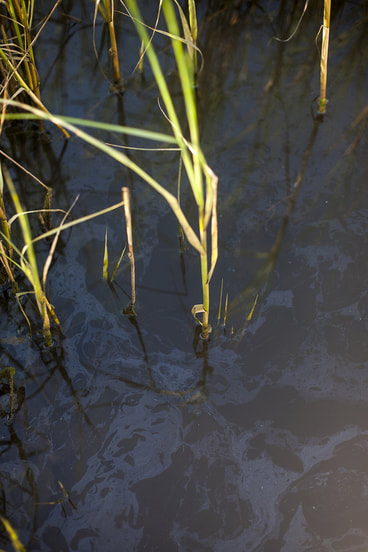Research Interests
There are multiple lines of research in the lab, with two common themes: (I) understanding variation (among individual birds and among bird species) in the effects of environmental pollutants, and (II) leveraging pollutants to understand ecological and evolutionary susceptibility and response to disturbance.
|
PFAS exposure and effects in birds
We are analyzing the concentrations of per- and polyfluoroalkyl substances (PFAS), also known as 'forever chemicals', in a variety of species, by both (a) collecting and analyzing bird tissues, and (b) conducting meta-analytical studies. (You can see a systematic map of the studies we have been collecting in the 'Dataviz' section of the website, here.) We are also conducting a study of the biomagnification of PFAS in a marine ecosystem.
|
Lead exposure in vultures and other raptors
The use of lead (Pb) ammunition for hunting was recently phased out in California, making this one of the most advanced levels of protection worldwide against contamination by Pb ammunition. The Turkey Vulture (Cathartes aura) is an obligate scavenger that is exposed to Pb ammunition by feeding on carrion.
In collaboration with Dr. Pete Bloom (Bloom Biological Inc.) and Dr. Miguel Saggese (Western University of Health Sciences), we are measuring Pb exposure and its physiological consequences in Turkey Vultures, while also putting to test the efficacy of the state-wide ban on Pb ammunition for hunting. |
|
The ecological effects of nuclear accidents
Landscape-wide contamination created by nuclear disasters provides a setting to investigate variation across across species in their exposure, sensitivity, and response to nuclear contamination. We analyze the consequences of the the nuclear disasters of Chernobyl and Fukushima at different levels of biological organization: on the physiology, behavior and life history of a variety of organisms, including birds, mammals and insects. We use a combination of fieldwork observations and laboratory assays to investigate the effects of radioactive contamination at different levels: at the individual level, at the population level, as well as at the level of communities. Selected publications Bonisoli-Alquati A., Koyama H., Tedeschi D., Kitamura W., Suzuki H., Ostermiller S., Arai E., Møller A.P., Mousseau T.A. Abundance and genetic damage of barn swallows from Fukushima. Scientific Reports 5: 9432. PDF Bonisoli Alquati A., Mousseau T.A., Møller A.P., Caprioli M., Saino N. 2010. Increased oxidative stress in barn swallows from the Chernobyl region. Comparative Biochemistry and Physiology A 155: 205-210. PDF Bonisoli Alquati A., Voris A., Mousseau T.A., Møller A.P., Saino N., Wyatt M.D. 2010. DNA damage in barn swallows (Hirundo rustica) from the Chernobyl region detected by the Comet assay. Comparative Biochemistry and Physiology C 151: 271-277. |
|
The environmental effects of the Deepwater Horizon oil spill.
The Deepwater Horizon (DWH) oil spill is the largest accidental oil spill in history, and one of the worst environmental disasters in the history of the United States. Our lab researches the ecological and environmental effects of the DWH oil on organisms living in the marshes of southern Louisiana, from molecular to life history effects. After demonstrating that oil from the spill was incorporated in the tissues of seaside sparrows (Ammospiza maritima), we are now analyzing their physiological and transcriptomic responses. Selected publications Bonisoli-Alquati A., Stouffer P.C, Woltmann S., Turner E., Taylor S.S. 2016. Incorporation of oil carbon in a terrestrial bird. Environmental Research Letters. 11: 114023. PDF Bonisoli-Alquati A., Xu W., Stouffer P.C, Taylor S.S. 2020. Transcriptome analysis indicates a broad range of toxic effects of Deepwater Horizon oil on Seaside Sparrows. Science of the Total Environment 720: 137583. PDF Perez-Umphrey A.A., Johnson C.B., Bonisoli-Alquati A., Snider, A.M., Stouffer P.C., Taylor S.S., 2022. Sex and habitat drive hantavirus prevalence in marsh rice rat populations impacted by the Deepwater Horizon oil spill. Ecosphere. 13: e3929. https://doi.org/10.1002/ecs2.3929 Snider A.M., Perez-Umphrey A.A., Bonisoli-Alquati A., Stouffer P.C., Taylor S.S. 2022. Comparing the utility of gizzard and fecal samples for dietary metabarcoding in Seaside Sparrows. Ornithological Applications 124: duab060. Hart M.E., Perez-Umphrey A.A., Stouffer P.C., Bergeon-Burns C., Bonisoli-Alquati A., Taylor S.S., Woltmann S. 2021. Nest survival of Seaside Sparrows (Ammospiza maritima) in the wake of the Deepwater Horizon oil spill. PLoS One 16: e0259022. |

Maternal effects mediated by the quality of the egg
My studies in this area lie at the interface between parental strategies of resource allocation to the offspring, and the offspring's development and competition for those resources. Most of my work in this area is conducted on birds, through the experimental manipulation of egg quality (in terms of nutrients and hormones), as well as through the manipulation of offspring competitive environment. I am also interested in the life history trade-offs that shape maternal strategies of contribution to the eggs, and the physiological currency underlying these trade-offs.
Selected publications
Bonisoli Alquati A., Boncoraglio G., Caprioli M., Saino N. 2011. Birth order, individual sex and sex of competitors determine the outcome of conflict among siblings over parental care. Proceedings of the Royal Society London B: Biological Sciences 278: 1273-1279. PDF
Bonisoli Alquati A., Matteo A., Ambrosini R., Rubolini D., Romano M., Caprioli M., Dessì-Fulgheri F:, Baratti M., Saino N. 2011. Effects of egg testosterone on female mate choice and male sexual behavior in the pheasant. Hormones and Behavior 59: 75-82. PDF
Bonisoli Alquati A., Martinelli R., Rubolini D., Saino N. 2008. Sex-specific effects of albumen removal and nest environment manipulation on Barn Swallow nestlings. Ecology, 89: 2315-2324.
Bonisoli Alquati A., Rubolini D., Romano M., Boncoraglio G., Fasola M., Saino N. 2007. Effects of egg albumen removal on yellow-legged gull chick phenotype. Functional Ecology, 21: 310-316.
My studies in this area lie at the interface between parental strategies of resource allocation to the offspring, and the offspring's development and competition for those resources. Most of my work in this area is conducted on birds, through the experimental manipulation of egg quality (in terms of nutrients and hormones), as well as through the manipulation of offspring competitive environment. I am also interested in the life history trade-offs that shape maternal strategies of contribution to the eggs, and the physiological currency underlying these trade-offs.
Selected publications
Bonisoli Alquati A., Boncoraglio G., Caprioli M., Saino N. 2011. Birth order, individual sex and sex of competitors determine the outcome of conflict among siblings over parental care. Proceedings of the Royal Society London B: Biological Sciences 278: 1273-1279. PDF
Bonisoli Alquati A., Matteo A., Ambrosini R., Rubolini D., Romano M., Caprioli M., Dessì-Fulgheri F:, Baratti M., Saino N. 2011. Effects of egg testosterone on female mate choice and male sexual behavior in the pheasant. Hormones and Behavior 59: 75-82. PDF
Bonisoli Alquati A., Martinelli R., Rubolini D., Saino N. 2008. Sex-specific effects of albumen removal and nest environment manipulation on Barn Swallow nestlings. Ecology, 89: 2315-2324.
Bonisoli Alquati A., Rubolini D., Romano M., Boncoraglio G., Fasola M., Saino N. 2007. Effects of egg albumen removal on yellow-legged gull chick phenotype. Functional Ecology, 21: 310-316.



